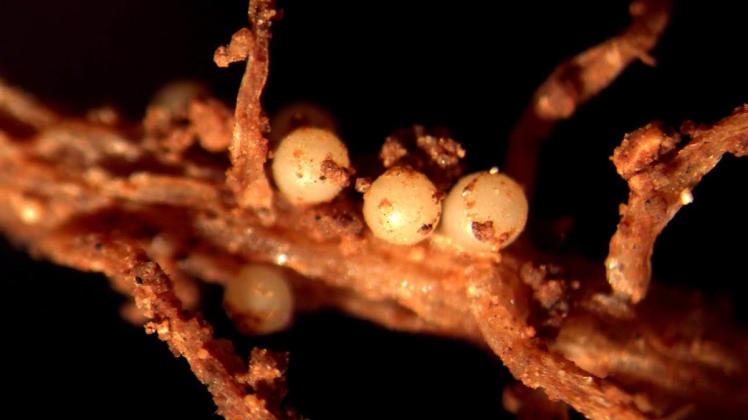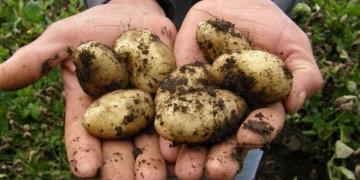Spain (Mallorca): Metam sodium temporarily authorized for the control of potato nematodes
Given this phytosanitary problem, soil disinfection is a necessary practice for this crop in Mallorca.

To curb the incidence of potato cyst nematodes (Globodera pallida and Globodera rostochiensis), the Ministry of Agriculture, Fisheries and Food has temporarily authorized phytosanitary products formulated with 51% metam sodium for soil disinfection in potato cultivation in some municipalities in Mallorca.
Potato cultivation has a long history in the Balearic Islands; it is one of the few export crops produced there, with over 70% sold in the European Union and United Kingdom markets. This is an extra-early potato, with a planting period that runs from October 1st to December 14th each year, and a harvest season that begins in early March.
It has become a monoculture, with the presence of difficult-to-eradicate pests and diseases, such as Globodera spp., one of the most problematic groups of nematodes due to its biological characteristics, such as its highly specialized parasitism on the Solanaceae family, its high reproductive capacity, and the existence of a resistance or cyst phase in its life cycle. Even in the absence of the host plant, the population only decreases by 30% per year, and in cases of severe infestation, it can take 20 to 30 years to disappear.
In 2019, the Official Plant Health Laboratory of the Balearic Islands (LOSVIB) confirmed the presence of Globodera sp. Since then, a total of 153 samples have been analyzed for its detection, of which 86 have been positive. In 2021, the General Directorate of Agriculture, Livestock, and Rural Development of the regional government approved the surveillance and control plan for both nematodes within the Potato Cultivation Procedure Manual.
Given this phytosanitary problem, soil disinfection is a necessary practice for this crop in Mallorca. Metam sodium has been widely used before planting crops. It is an active substance with nematicidal, fungicidal, and herbicidal action. The Ministry has authorized its use in the municipalities of Búger, Campanet, Inca, Llubí, Muro, and Sa Pobla, which account for almost all of the island’s potato cultivation area, and in two periods: from July 21 to August 14 and from September 15 to December 18.
To carry out the treatment, nematological analyses are required to determine the presence of nematodes. Treatment can only be carried out if the incidence exceeds the threshold of 1,000 Globodera sp. eggs per 100 grams of soil. If the analysis results are between 450 and 1,000 eggs, the regional plant health technical services will authorize the use of metam sodium, based on the history of each plot. If the nematode level is below 450 eggs, the phytosanitary product cannot be used.
Outdoor application should be by soil injection or drip irrigation. In the first case, the product is applied undiluted; in the second, it is injected undiluted through the drip irrigation system, and the proportion of the total water volume applied through the irrigation system should not be less than 2%.
After application, whether by injection or drip irrigation, the treated surface must be sealed mechanically or by placing a gas-impermeable plastic film, such as TIF. The seal must be maintained for 21 days; then, the necessary work to remove any phytotoxic residues must be carried out five or six days before sowing or transplanting. A germination test should always be performed on watercress before sowing or planting to confirm the absence of any residue in the soil that could cause phytotoxic effects.
For the application of metam sodium, the soil must be free of crops, well tilled, loose, free of clods or plant debris, sufficiently moist (60-80% of the field capacity), and with a temperature between 10-25°C. The Ministry recommends moistening irrigation seven to ten days before treatment.
The pesticide should only be applied during daylight hours. In case of wind, the wind direction must be taken into account and only applied when the wind is against the direction of nearby homes, towns, or inhabited areas.
During treatment, and for up to 24 hours afterward, within a 125-meter radius of the edges of treated plots, pedestrians are prohibited. Under no circumstances may the spray be applied within 125 meters of inhabited areas.
No one without protective equipment is allowed access to the treated area until 21 days have passed since treatment. In the case of sealing with TIF plastic film, these 21 days must be added to the time required for the removal of the plastic.
Fuente:




